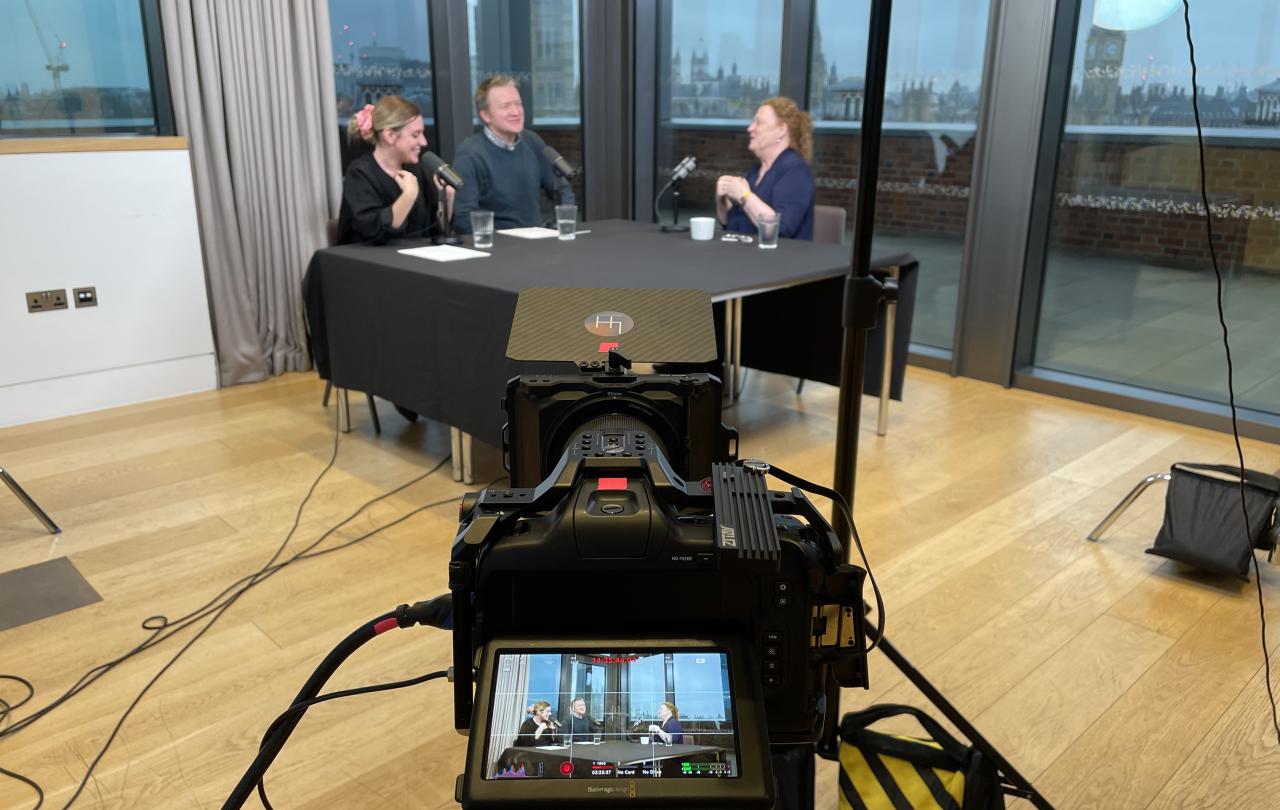
There's one dominion Amazon hasn't conquered. Jeff Bezos famously chose his company's name, in part, because it's the largest river in the world and he wanted to create the world's largest bookstore. And Amazon has flooded the market. But as the world of podcasting is taking over our commutes and leisure time, Amazon isn't taking it over. That top spot belongs to BetterHelp.
Now that I've mentioned it, you probably know what I'm referring to: the ubiquitous ads offering online therapy, often reassuringly read by the podcast hosts themselves. Although Amazon is the second largest ad buyer on podcasts, BetterHelp spends more. A lot more. In the US, BetterHelp spent $22million in the second quarter of this year, followed by Amazon with $13million. . BetterHelp has pretty much been the top spender on podcasts Clearly, BetterHelp thinks the demand for therapy is right up there with the convenience of getting stuff delivered to your door.
The message of online therapy, and the medium of podcasts makes for a neat match. It seems our wants and needs are more and more solo endeavours. Our desire for entertainment and help are becoming something we access alone, behind headphones and closed doors.
Overhearing people talking about their therapist in a metropolitan café is now as as common as the extra-hot flat whites themselves.
I was stunned when I heard recently that Saturday Night Live celebrated fifty years on TV. It was a reminder of an age when families and friends would diarise prime-time weekend entertainment together in front of the glow of the screen. But common experiences are diminishing. Harvard fellow Flynn Coleman highlights that the third spaces where we have customarily congregated, found community, and ourselves, are vanishing. 
She is, of course, right. We are just beginning to scratch the surface of the damage our atomised online worlds have created. But where the CDC health report last year tragically detailed the harm social media causes teenage girls, the online space is not without hope. Krish Kandiah writes, 'Instead of demonising new technology as the problem, perhaps we need to find ways to turn it into the solution.'The online world isn't going away, so it must be at least part of the solution. Teletherapy is now available on the NHS, and while there are questions over the affordability and availability of online mental health care, and I cannot vouch for BetterHelp, making therapy more accessible by taking it online plays an important part in winning the battle of declining mental health.
Far from an echo chamber, an online therapist can challenge presumptions at right angles and enable clients to access worlds they previously only dreamed of. And, any good therapist wouldn't encourage you to isolate yourself. We still need community.
Therapy isn't as much a solo endeavour as we might first think. Of course, the therapeutic relationship itself is between two people, however objective one party might be. And just as the old adage goes, 'a problem shared is a problem halved', overhearing people talking about their therapist in a metropolitan café is now as as common as the extra-hot flat whites themselves. Therapy is losing its stigma, and the benefits of it are shared just as we want to share a podcast that's stimulated or amused us.
That elusive arrival at contentment, of happiness, of satisfaction is quite the claim for an online service provider to make.
Some things are sacred, though. James Marriott recently argued in The Times that the burden on those in the public spotlight to overshare isn't always helpful. How, where and with whom we share our inner thoughts matters. The Christian tradition sees that growth happens through relationship, rather than through broadcasting. Spanish mystic St Teresa of Avila wrote almost half a millennia ago about a journey inward, inside of ourselves to a space where only God dwells, if we choose to let him enter. On that journey, she wrote ‘It is a great advantage for us to be able to consult someone who knows us, so that we may learn to know ourselves.’
On that journey of self-knowledge, the online world can enhance our lives, but not replace it. Just as The Rest is History podcast can give you details about ‘greatest monkeys' that your friend can't, specialist help from an online therapist will help you in ways friends won't. But BetterHelp wants to be your friend. The main heading on their website mimics what we've probably all heard from someone we know: 'You deserve to be happy'. They've learnt from the Steve Jobs school of marketing: don't sell the product or service; sell how it will make them feel. That elusive arrival at contentment, of happiness, of satisfaction is quite the claim for an online service provider to make.
Podcasting and therapy alike scratch our itch to be inquisitive about things, even our own inner worlds. Where podcasting has challenged the old powers that sought to control the flow of information, we also do well to listen to external expert help. In this age, the online stream can flow information to us which, like the Amazon, might overwhelm us. It’s worth us asking: is there an external source of even better help available? One that will overwhelm us too – but instead overwhelm with the love we crave in our deepest selves?





